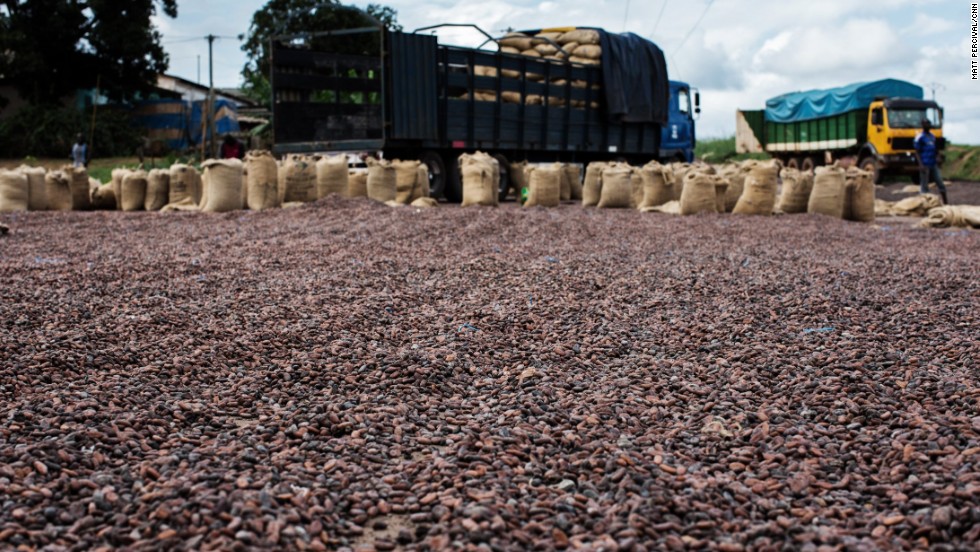Cocoa grinding companies in Ivory Coast said they are rejecting between 30 and 50 percent of beans because of high acidity levels, which along with other quality problems is likely to cause a sharp drop in port arrivals next week.
Weekly cocoa port arrivals in the world's top grower are expected to fall by half to around 20,000 tonnes starting next week due to problems including small bean size, high acidity and mould, exporters said. 
Cocoa arrivals are up nearly 7 percent so far this season from the previous season, with at least 40,000 tonnes being delivered weekly to Ivory Coast's two ports of Abidjan and San Pedro since February.
Bean acidity is measured by free fatty acid (FFA) levels, which when high erode the quality of cocoa butter. The European Union has set a ceiling for FFAs in cocoa beans of 1.75 percent oleic acid equivalent.
However, FFA levels jumped to between 3 and 5 percent at the end of February, grinding companies said, making the beans unusable.
Five of Ivory Coast's 12 local grinders said they had rejected about half the beans delivered in the last two weeks because of high acidity levels. Four grinders said they had rejected around 30 percent.
"For the last two weeks we have experienced this situation with FFA which literally exploded in several days when we went from 1.75 percent to 3.4 and 5 percent," the director of a grinding company said on Wednesday.
The situation will likely continue for at least six to eight weeks until the April to September mid-crop harvest produces enough good beans to create an acceptable average acidity level when mixed with the bad ones, exporters said.
If the mid-crop starts off strong, arrivals could start to recover from the dip in May or June, they said.
High acidity is thought to be caused by dry weather, though exporters said in some cases it was likely due to beans being stored for months in bad conditions.
"We are forced to reject the acidic beans because we can't do anything with them, so we're waiting until good beans arrive to start buying again," said the director of another grinding company, in Abidjan.
A senior official at another export company said there is concern that the mid-crop beans will also be acidic if rainfall does not improve in the east, centre-west and parts of the southwest.
© Reuters News
Wednesday, 15 March 2017
Ivory Coast cocoa grinders reject beans due to high acidity
Subscribe to:
Post Comments (Atom)









0 comments:
Post a Comment